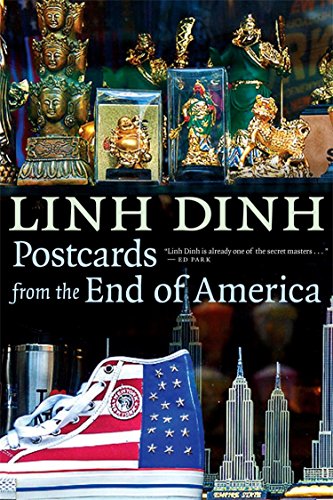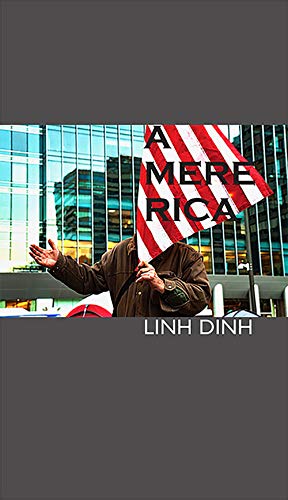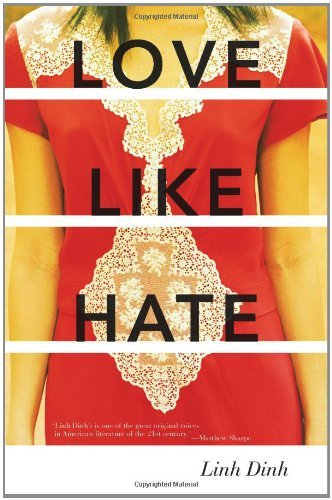Two years ago, I was having dinner in NYC with a group of Japanese writers. Next to me was Mieko Kawakami, who’s also known as a pop singer. Since her English was very limited, we conversed mostly through another person. Seeing that my beer glass was empty, Mieko filled it.
Earlier this year, I found myself in Tokyo with nearly the same group of Japanese, and next to me, again, was Mieko. Seeing that my bowl was empty, she used her chopsticks to replenish it with some fatty pork.
In Saigon a month ago, I was having dinner with a bunch of Taiwanese businessmen, whom I had just met. Next to me was a 36-year-old who had been in Vietnam for six years, was married to a Vietnamese and had two kids with her, so he spoke Vietnamese quite comfortably, even rapidly, though I must I admit, I only understood about half of it, such was his accent. Seeing that my bowl had some food scraps, he picked it up, cleaned it out with his chopsticks, then filled it with a couple of shrimps.
To be attentive to others at the dinner table is a trait inculcated in East Asians since childhood. It shows civilization, not obsequiousness. At an Oriental banquet, tables tend to be round, an egalitarian arrangement with no honored seats, and all the dishes are in the middle. Although you’re only supposed to pick, say, a piece of chicken that’s close to you, and not reach across a plate, you can choose a better morsel for anyone else, especially an older person, a guest or a social superior, such as your boss. To express concern, they can also drop food in your rice bowl.
 Postcards from the End...
Best Price: $7.22
Buy New $12.95
(as of 05:45 UTC - Details)
Postcards from the End...
Best Price: $7.22
Buy New $12.95
(as of 05:45 UTC - Details)
Decades ago, I was at a Chinese restaurant in Northern Virginia with a close friend, Brian Robertson, and when our two dishes arrive, Brian instantly divided each in half, right down the middle, and scooped his shares onto his plate. Had I used my utensils to pick out food for Brian, he would have cringed and protested, I’m sure.
East is East, and West is West, and though the two do overlap, you will always know whether you’re in Intercourse or Phuoc Hai, and that’s good. Though relentlessly assaulted, the local endures, but it must be fiercely protected and nurtured.
Repeatedly, I have pointed out how boundaries are often blurred in Vietnam, but this also means that personal space is not as respected as in the West. In 1957, Gontran de Poncins published his excellent From a Chinese City, which documents his year of living in a residential hotel in Cho Lon, Saigon’s Chinatown. Other occupants were disturbed by De Poncins’ habit of keeping his door closed during the day, so they would just open it. Seeing that De Poncins was always alone, they asked if he needed a woman, and when he said no, they offered to bring him a boy. As De Poncins sketched, someone might snatch his notebook from him, to see what he was drawing.
Saigon in 2018 is much more Americanized, so there are gated communities, condos with security guards, restaurants behind plate glass windows, ubiquitous English schools and aggressive rap music being spat at you by street performers on Bui Vien Street. At a wedding, I noticed all the young people at my table were staring at their smart phones for nearly the entire evening. American styled swagger or aggression is also being aped, so on a truck in my neighborhood, I saw, in English, “CHOOSE LIFE / DON’T TOUCH MY CAR,” with the image of two hand guns being pointed at the viewer. In several Vietnamese cities, and even Singapore, there are Liêm barbershops, where all the hair cutters are all tatted up and dressed as cholos. Speaking to packed rooms of young Vietnamese, Liêm passionately teaches them on how to properly wear a bandana, flannel shirt or Ben Davis pants, etc.
Since I live five miles from downtown, however, the texture of my daily life is still very much Vietnamese, even if there’s a McDonald’s, Popeyes and KFC within a ten minute walk. Riding a beat up bicycle, a knife sharpener offered his service. Passing a funeral, I saw the pallbearers tilting the coffin three times, to make it bow to its old house, then three more times at the head of the alley, to say farewell to its neighborhood.
This morning, I had a 47 cent cup of coffee at a café in an alley. People streamed by, on foot or motorbikes. Within sight was the neighborhood Buddhist temple. Although hideous looking, it does have a shady and somewhat quiet courtyard, so sometimes I’d go and sit on one of its cement benches, near a bunch of wizened monks.
Vietnamese know their neighbors. The café’s owner is a taciturn middle-aged dude who keeps half a dozen lurid fish in a couple of tanks. His grown son is a heroin addict who’s been in and out of jail. The smirking young man has never had a job, only lots of tattoos.
On my right sat office workers in white shirts and black pants, and to my left was a man, called Mr. Mulberry, who had a stroke a decade ago, so now must inch around with a walker. Even before Mulberry got debilitated, his wife left him to marry a Vietnamese-Australian.
Mulberry has six brothers and two sisters. Two brothers are in Australia. The sisters were infamous in this neighborhood as “horses,” the Vietnamese term for “sluts,” because people could ride them.
Mulberry’s dad used to beat his mom, and complain that her skin wasn’t as smooth as his mistress’. Despite all this, they’re still together, and live with Mulberry and a daughter, a single mom, of course, in the house across the alley from my table.
Hearing anyone’s life story, I’m always filled with amazement and admiration, because I’m not sure I could have endured so many sucker punches from random strangers, God, my family and the weather.
At another neighborhood café a while back, I sat next to a man in his early 70’s who had raised ten kids. He has owned a company making truck trailers since before the Fall of Saigon.
“I made more than enough to take care of all my kids, then the state took over my company. They had to keep me on, however, because the company could not have functioned otherwise. I had all these supervisors and advisors who collected salaries, but did nothing. I survived all that. After Đổi Mới [Renovation], I got my company back.”
“Did you try to escape the country?” I asked.
 A Mere Rica
Best Price: $12.03
Buy New $12.04
(as of 07:25 UTC - Details)
A Mere Rica
Best Price: $12.03
Buy New $12.04
(as of 07:25 UTC - Details)
“No, because I had ten kids! It would have been too complicated, and I didn’t want to send a couple of kids out by themselves. It would have been too risky.”
“So they’re all still here?”
“Yes, and they’re all doing well. One of my sons bought land and houses when they were still cheap, decades ago. He’s loaded. Another son works for the government as an electrical engineer. One of my daughters owns this café,” where we were sitting. “All the Socialist countries were dirt poor, while the Capitalist countries were rich. That’s why things had to change.”
After dinner with the Taiwanese businessmen, they dragged me to a karaoke session, so of course I had to go, and there, in a private room with pulsating blue, green and purple lights, each of us was assigned a hostess. Since I’m not gay, transitioning or rude, I graciously allowed myself to be fondled a bit by my “littlest sister,” which is Vietnamese slang for such a lady. I did milk Lan for her life story.
Though looking no more than 23, Lan was actually 35, and a divorcee raising a five-year-old son pretty much by herself, with her ex now a laborer in South Korea. Knowing her hostess career was quickly winding down, she had been saving, “I want to own a jewelry store, but I still don’t have enough cash, so I’m just going to open a little variety store.”
“Who takes care of your kid while you’re working?”
“My mom.”
“What’s his name?”
“Tuan.”
“Is Tuan a good kid?”
“Yeah,” she smiled.
“Smart?”
“Pretty smart.”
As I get older, my eyes often discharge this greenish pus. It’s disgusting, I know. With a moist towelette, Lan dabbed at the corners of my eyes. I didn’t purr, I swear.
“Some customers can be pretty gross, but we don’t have to serve any of them. If we walk out, though, we don’t get paid.”
It’s good to hear people’s stories, face to face. In Philadelphia, I knew almost none of my neighbors, so the only local community I had were the drinkers inside Friendly Lounge, yet even there, it was hard to talk, because the television was always on, even if no one was watching it, and the jukebox often interrupted.
Though not all Americans bowl, eat, drink and have sex alone, too many are divorced from their neighbors, neighborhood, the direct experience and even their own thought process, since it is regularly drowned out by canned garbage. Since the collapse of the American empire will be, among other things, a cultural and psychic deliverance for Americans themselves, all should wish for it.
One night in Philly, there was a blackout for maybe an hour, and inside McGlinchey’s, where I was sitting, the barmaid dug out some candles and lit them. Without electronic distractions, we became much more conscious of everyone else’s presence, clearly heard everything that was said, even if it was across the room, and was encouraged, or at least not prevented, from chattering at length. Finally, stories could flow. I remember being soothed, but also saddened, for why wasn’t this the norm?
A decade ago, I gave a reading at This Ain’t the Rosedale Library, a Toronto bookstore now out of business. It was fairly well attended, and afterwards, a bunch of us went to some Kensington Market bar to talk, but the canned music was so loud in there, conversations were impossible. We were reduced to shouting snippets at each other. I screamed to a woman next to me, “This is why poetry is dead!”
 Love Like Hate: A Novel
Best Price: $5.10
Buy New $11.14
(as of 10:10 UTC - Details)
Love Like Hate: A Novel
Best Price: $5.10
Buy New $11.14
(as of 10:10 UTC - Details)
“What?!”
“Poetry is dead!”
“Yeah!”
“This is why!”
“Huh?”
“We can’t even fuckin’ talk!”
“I know!”
Lastly, an announcement: at 6PM on Sunday, November 18th, I’ll give a reading in Tokyo at Aoyama Book Center, 5-53-67 Jingumae, Shibuya-ku, Cosmos Aoyama Garden Floor (B2F). Mieko Kawakami was supposed to appear with me, but some nutcase has threatened, online, to come to this event to stab her, so the police has advised Mieko to not show up. It’s a great shame, but it’s also heartening to know that literature can still be that deadly serious somewhere.
Reprinted with permission from The Unz Review.




